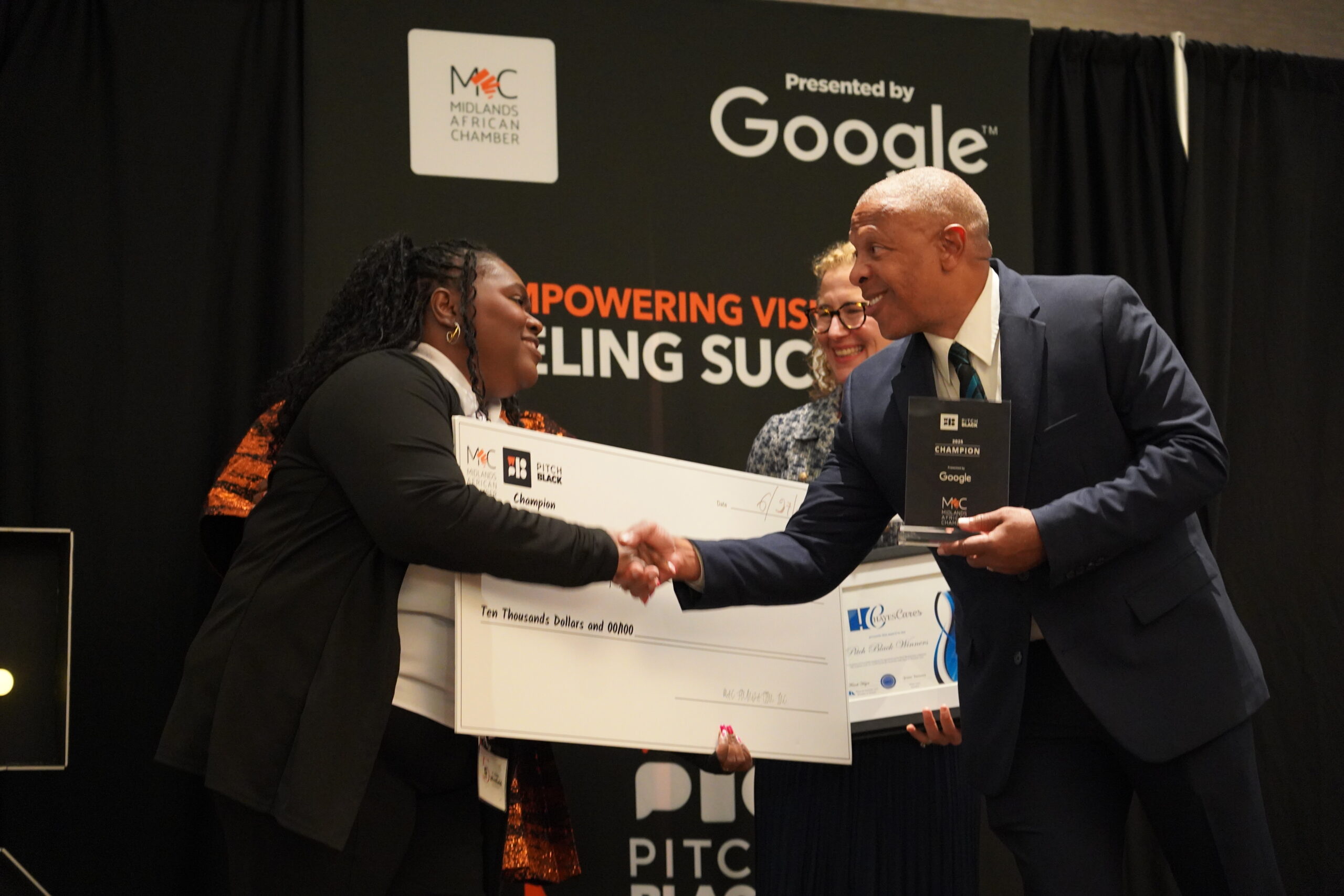On Tuesday, November 13, 2018, Amazon announced that its new HQ2 would actually be two locations: NYC and Northern Virginia (near DC).
Many Silicon Prairie cities were left disappointed because their communities and states had provided bids to Amazon offering significant incentives to locate HQ2. Ultimately, it does not appear that HQ2 went to the highest bidder. Instead, it appears that the two locations were selected for alternative reasons.
The blow back on these types of heavy incentive-laden deals appears to be strengthening around the country.
Multiple newspapers and other news media have outlined how dollars might be alternatively spent. We agree that those dollars that could have been spent on opening a large corporate office would be better spent on building a startup ecosystem.
We discovered a fine blog post by Jeffrey Carter on his Points and Figures Blog. Instead of rehashing this position, we have reposted this blog in its entirety with his permission. If you would care to read the original on his site, this is the link: https://pointsandfigures.com/2018/11/14/why-did-chicago-lose-amazon/.
About Jeffrey Carter
Mr. Carter is a general partner at West Loop Ventures. In April of 2007, he co-founded Hyde Park Angels. He is a current investor in many startups, particularly in financial technology. He was instrumental in transforming the Chicago Mercantile Exchange into the largest electronic exchange in the world. He is also a graduate of the University of Illinois College of Business and has an MBA from the University of Chicago, Booth Graduate School of Business.
Carter is a free market advocate based on his experiences with free, transparent marketplaces. In 2017, he was an advisor to the G7 on the future of work, artificial intelligence, and big data.
And, he likes the Cubs…so there’s that.
––
Why did Chicago lose Amazon?
by Jeffrey Carter
Amazon chose Washington DC and NYC. Does it make sense?
It all depends on the goals of Amazon. Clearly, they weren’t looking at business decisions like logistics or to make sure their cost of doing business was low. DC and NYC have very high costs of living and very high taxes.
One thing that it’s important to recognize is that they chose DC. I think the reasons behind that are not only because it’s close to government operations where Amazon might be able to make a lot of B2B inroads. I think it’s also a recognition of the power of a central government. That’s too bad.
People really need to get to know Professor George Stigler and his theory of regulation. To generalize. Democrats put their trust in centralized government and hate corporations. Establishment Republicans are similar but really like crony capitalism. Other Republicans dislike big government and big corporates. They favor small and medium size businesses. Stigler shined a light on the role of government in our capitalist society. Econlib says,
He argued that economists should study the effects of regulation and not just assume them. He twitted the great economists of the past who had given lengthy cases for and critiques of government regulation without ever trying to study its effects. In Stigler’s view things were not much better in the twentieth century. “The economic role of the state,” he said, “has managed to hold the attention of scholars for over two centuries without arousing their curiosity.” Stigler added, “Economists have refused either to leave the problem alone or to work on it.”
Many economists got the point. Since the mid-1960s, economists have used their sometimes awesome empirical tools to study the effects of regulation. Whole journals have been devoted to the topic. One is the Journal of Law and Economics, started at the University of Chicago in 1958. Another, the Bell Journal of Economics and Management Science, later the RAND Journal, started in 1970. As a general rule economists have found that government regulation of industries harms consumers and often gives monopoly power to producers. Some of these findings were behind economists’ widespread support for the deregulation of transportation, natural gas, and banking, which gained momentum in the Carter administration and continued until halfway through the Reagan administration. Stigler was the single most important academic contributor to this movement.
Stigler was not content to examine the effects of regulation. He wanted to understand its causes. Did governments regulate industries, as many had believed, to reduce the harmful effects of monopoly? Stigler did not think so. In a seminal 1971 article, “The Theory of Economic Regulation,” he presented and gave evidence for his “capture theory.” Stigler argued that governments do not end up creating monopoly in industries by accident. Rather, he wrote, they regulate at the behest of producers who “capture” the regulatory agency and use regulation to prevent competition. Probably more important than the evidence itself was the fact that Stigler made this viewpoint respectable in the economics profession.
NYC on the other hand was a different story. It’s got all the retail capital markets. It’s also a city that is huge, and unlike any other American city. NYC isn’t a closed network. It’s constantly flowing and changing and the question there isn’t “Where are you from?” The question is “Can you do it?” People come from everywhere. There is just a huge number of people there in a concentrated area compared to anywhere else in the US. Networks like that don’t get smaller, they get bigger. NYC is in America, but it doesn’t necessarily feel like an American city.
Amazon opened itself up to randomness by selecting NYC.
So, why not Chicago? It’s a big city. It’s logistically perfect. Talent wise, it is super easy to recruit to Chicago. There is not only tech talent, but marketing and logistical talent. That seems to be the stuff Amazon needed.
Others have postulated reasons for not Chicago. Sam Zell cited the political situation. John Pletz at Crain’s cited other issues. The Chicago Tribune cited still more issues.
I am going to take a different cut at it.
Chicago is a great city. It’s beautiful. The quality of life is wonderful. It has great restaurants. It has really great people with Midwestern values that are loyal. But, it’s not NYC. It’s also not like San Francisco.
Chicago is a closed network. Look at the 600 member committee that was tasked with bringing Amazon here. See anyone that isn’t connected to anyone? See any looseness around it? It’s the same names in Chicago over and over again. The same people and they all get connected back to the Democratic political machine which is suffocating growth in Illinois and the city of Chicago.
There is a “Project 33” going on now. See anyone new? Anyone that is out of the mainstream or not connected?
Great gains are not planned or linear. They jump all graphical lines. They often are accidents. That doesn’t happen in tightly controlled networks. Closed networks like predictability, not randomness.
Chicago has always been a closed network since its inception back in 1830. It hasn’t changed. Read the book City of the Century if you want to understand it. The only places that were “open” were the trading floors. That brought new blood to the city. The floors were merit based and it was about “can you do this-can you survive?”. If you knew the Speaker or Mayor you might have gotten a wink once in a while but you had to perform. Chicago isn’t going to change because it’s too fearful for the power drivers in the network to have a lot of new people that will make outcomes more random.
Once, a politico invited me to a meeting to inject some randomness. I was an outlier. We were talking about tax increment financing districts and what to do about them. I didn’t know a lot about them so I listened and asked a lot of questions. At the end of the meeting, they asked me what I thought. I said, it seems that these TIFs give a lot of power to one person, the alderman. Why not just take all that power away, all that application process and paperwork away, and simply lower the taxes across the entire district for businesses that decide to locate and employ people there?
I wasn’t invited back because an idea like that is too scary to people in a closed network that want to control things. They don’t want nobody nobody sent.
I think Amazon saw that on their visits here. If you spend enough time here, you get a sense of that.
Our tech scene is infinitely better today than it was in 2007. When we started HPA, we were seen as interlopers. Outsiders. No one knew us. We were the nobodies nobody sent.
However, our tech scene can be awfully closed minded and tough to navigate from the outside. It’s a closed network. When politicians are giving away awards at awards ceremonies, you have a problem.
We lose entrepreneurs to the coasts because of this attitude. Outlier ideas are very unsettling. But those are the ones that can become blow out ideas. Uber should have started in Chicago. But, I bet if the Uber guy tried to raise a seed round here people would have looked at him like he had four eyes. Black car service on your phone? Random? Come on.
The other reason we lose entrepreneurs is lack of capital-and one of the reasons there is a lack of capital is because of the closed network. It’s tough to raise capital if you are the nobody that nobody sent.




